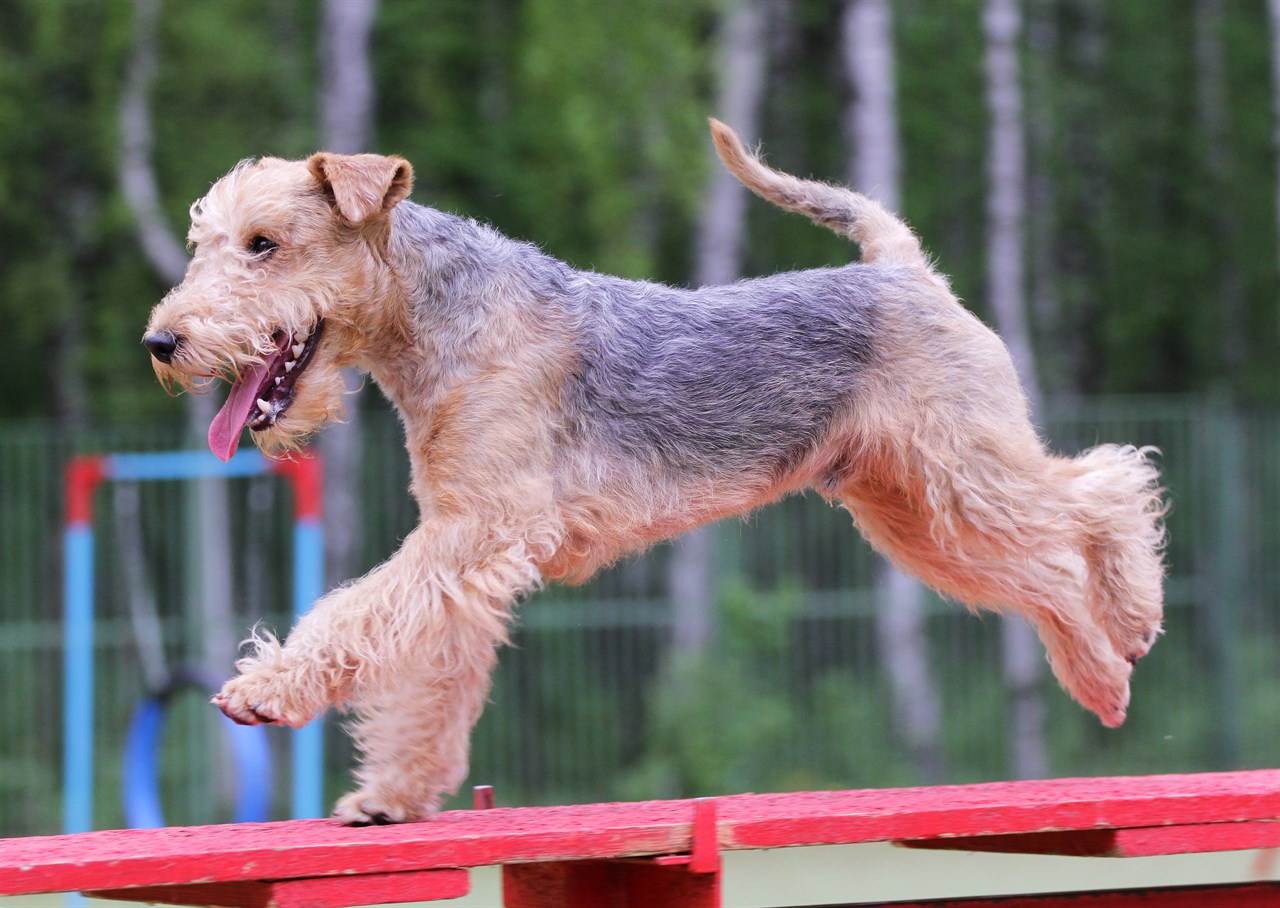Downsides or Disadvantages to Ownership of the Lakeland Terrier

While the Lakeland Terrier is a wonderful breed with many positive traits, there are also downsides and potential disadvantages to consider when thinking about owning one of these spirited dogs. It's important to be aware of these aspects to make an informed decision.
High Energy Levels
Lakeland Terriers are a high-energy breed that requires daily exercise and mental stimulation. Failing to meet their exercise needs can lead to behavioural problems, including excessive barking and destructive behaviour.
Stubborn Nature
Lakies can be strong-willed and independent, which can make training challenging, especially for first-time dog owners. Consistency and patience are required to establish authority and ensure they follow commands.
Grooming Demands
Their wiry double coat requires regular hand stripping to maintain its texture and colour. This grooming process can be time-consuming and may require professional assistance. Additionally, their facial hair may need frequent cleaning after meals.
Barking Tendencies
Lakeland Terriers are alert and vocal dogs, which can lead to excessive barking if not properly managed. They may bark at noises, strangers, or other animals, potentially causing noise-related issues in shared living spaces.
Small Animal Prey Drive
Many Lakeland Terriers have a strong prey drive, which means they may chase and potentially harm smaller animals like cats or rodents. It's crucial to socialise them with other pets and supervise their interactions.
Potential for Aggression
Some Lakies may exhibit aggressive behaviour, particularly toward other dogs of the same sex or unfamiliar dogs. Proper socialisation and training are essential to mitigate this risk.
Not Ideal for Allergies
While they are considered a hypoallergenic breed due to minimal shedding, some individuals with allergies may still react to their dander or saliva. Allergy sufferers should spend time with a Lakeland Terrier before committing to ownership.
Sensitivity to Temperature
Lakeland Terriers may be sensitive to extreme temperatures due to their wiry coat. They can overheat in hot weather and may require extra warmth in cold climates.
Not Ideal for Apartment Living
While Lakeland Terriers can adapt to apartment living with proper exercise, their high energy levels and need for play space make them better suited for homes with access to a secure yard.
Separation Anxiety
Some Lakeland Terriers are prone to separation anxiety, which can result in destructive behaviour when left alone for extended periods. This requires training and gradual acclimatisation to being alone.
In conclusion, while the Lakeland Terrier can be a loving and spirited companion, potential owners should be aware of the breed's specific challenges and downsides. Meeting their exercise needs, grooming demands, and training requirements is essential to ensure a happy and well-adjusted Lakeland Terrier in your home. If you are prepared for these challenges and can provide the necessary care, a Lakie can make a delightful addition to your family.
Lakeland Terrier puppies for sale
- Find Lakeland Terrier puppies for sale in ACT
- Find Lakeland Terrier puppies for sale in NSW
- Find Lakeland Terrier puppies for sale in NT
- Find Lakeland Terrier puppies for sale in QLD
- Find Lakeland Terrier puppies for sale in SA
- Find Lakeland Terrier puppies for sale in TAS
- Find Lakeland Terrier puppies for sale in VIC
- Find Lakeland Terrier puppies for sale in WA